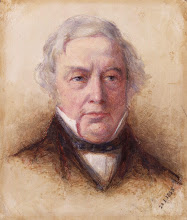ATHEISM AT LAST?
Can it be true? Are we finally to embark along a path leading to the time when a significant majority of the world outgrows religion? Sam Harris, Richard Dawkins, and Christopher Hitchens are three bright and articulate writers who hope so and are doing their part to help. And they are not alone. Check out the upcoming (September) atheist conference in Washington D.C..
God Is Not Great, by Hitchens, is the latest of these books to get to the public. Harris wrote A Letter to a Christian Nation and Dawkins gave us The God Delusion. These are said by most reviewers to be a delight to read, proving that arguments from evidence do not have to be dry. It is amazing to me that three such books have arrived on the best selling scene over such a short time..
Let's skip the excellent credentials of the three writers. You can look them up. But each work establishes its own validity; a different kettle of fish, you’ll notice, from so much writing of the religious, which must resort to the authority of a god or prophet. Harris, Hitchens and Dawkins rely on neither prophets nor gods, nor do they claim to be such. They simply have well-trained and keen minds, capable of finding truth where it exists. And they certainly convince me that there is no such thing as God.
But can they and their followers convince enough people so we finally have a world where there is no God? History does not hold out promise. Various regimes have tried over many years to stamp out religion and so far have failed. There is no doubt there is a mysterious universality of religious feeling, or at least a susceptibility to it's blandishments. But of course, that is no proof of a religion's validity. There are a number of theories as to the source of these puzzling "irrational" feelings and as to why they are defended with such passion.
The Stanford mathematician Keith Devlin offers, in a different context, one interesting speculation as to the source of this passion. Devlin is a regular contributor to NPR and on one of his shows he discussed a certain probability problem with a counter-intuitive correct answer . It is called the Monty Hall problem (see wickepedia) Many listeners were so sure their incorrect answer was correct they become quite angry with Devlin for demonstrating otherwise. He pondered this response, since it was so contrary to that of his students when he corrected their papers. Here's what he came up with.
Devlin posits that we have two reasoning processes. One he calls our everyday reasoning, and it has been "a highly successful survival strategy throughout evolutionary history, and today, is to base decisions on the immediate past and on the evidence immediately at hand." And though it rarely serves us well in this day and age, we are stuck with it. The other reasoning is that which we need for numerical calculations and to rigorously examine evidence, rather than to make unreliable snap judgments which would have been in the interest of our physical survival some thousands of years ago. But the first type of reasoning, Devlin asserts, while not often arriving at truth is a tremendous source of pride to us and its abandonment instinctively seen as a threat. So in a sense it seems a matter of life and death that we are right when relying on it. He feels that the Monty Hall problem is phrased so that this reliance on it is triggered. Is the same thing going on with religious beliefs?
A slew of other theories as to why religious feelings are so universal is presented by Paul Gabels in his recent book on the persistence of religion in Russia. Again they are mostly based on natural selection. But the bottom line is this: I am not going to believe something for which there is no evidence and is contrary to reason. Others are going to defend such beliefs, based on feelings and natural impulses. And if we don't kill one another, or others, over the dispute, what's the problem? But if we do, something must be done.


No comments:
Post a Comment